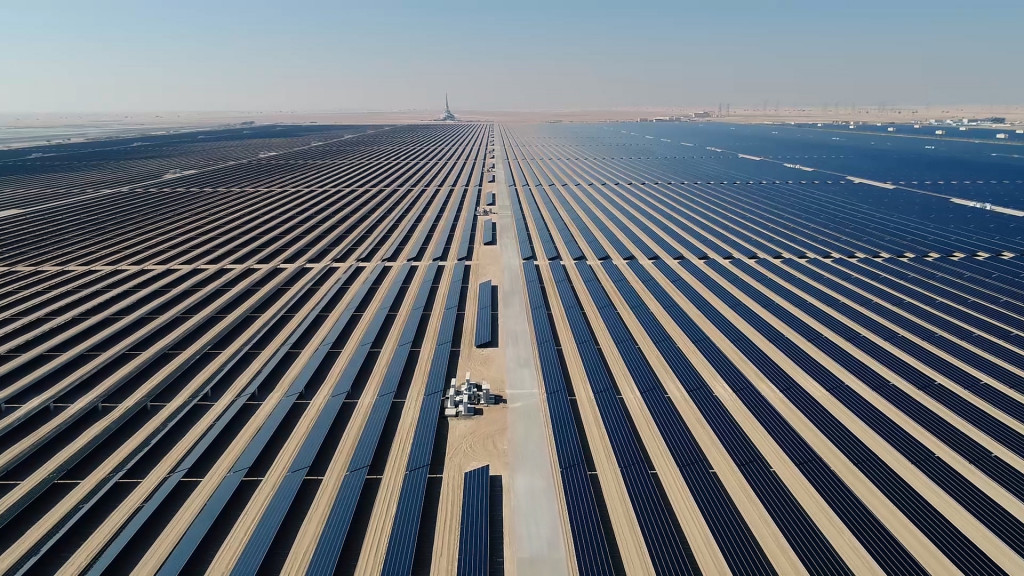Global demand for fossil fuels will peak this decade due in part to Russia's invasion of Ukraine, which has accelerated many countries' move to renewable energy, according to the International Energy Agency (IEA).
The invasion of Ukraine has created an energy crisis that, while triggering higher oil prices and related economic stress, has also led to increased government spending on renewable energy that could mark a "historic turning point" in the shift away from fossil fuels, the IEA said in its annual World Energy Outlook report.

Mohammed Bin Rashid Al Maktoum Solar Park in United Arab Emirates
If current spending trends for deployment of solar and wind energy, as well as EVs and battery energy storage, hold, global demand for fossil fuels will decline steadily beginning in the mid-2020s, with emissions related to burning fossil fuels peaking around 2025, according to the report.
That's dramatically stepped up compared to earlier peak-consumption forecasts, of less than five years ago, anticipating global peak consumption would happen sometime in the mid-2030s. And the IEA is making this prediction despite a raw material price surge, exaggerated by the invasion of Ukraine, that has put improvements in battery prices and affordability on hold.

2023 Cadillac Lyriq at EVgo DC fast-charging station.
Yet spending has increased enough to enable that accelerated timeline, according to the IEA, which predicts that global renewable-energy investment will now reach more than $2 trillion a year by 2030—an increase of more than 50% from today. The IEA points to policies like the Inflation Reduction Act (IRA), which includes a revamped EV tax credit, as helping assure this trend.
Today's EVs are as clean as the energy they're plugged into, but almost everywhere that calculates to cleaner than burning gasoline today. The shift to renewables, coupled with mass EV adoption, is also expected to bring economic gains—many of them attached to the local clean-air health benefits from EVs.












